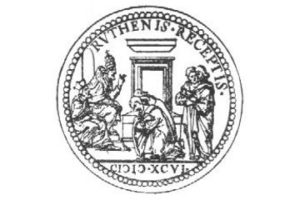
1595
The Union of Brest
National identity and religion are often closely tied. This was certainly the case in eastern Europe at the close of the sixteenth century. Many Slavic inhabitants of the Lithuanian-Polish Commonwealth (a territory encompassing what is now Poland, Belarus, Ukraine, Latvia, Lithuania and Estonia) were adherents of the Orthodox Church but they resented having to acknowledge the headship of the new Patriarchate of Moscow. In order to assert their independence from Russian hegemony many clerics sought to arrive at a bargain with the papacy and in return for certain important concessions they were willing to reunite with the Catholic Church and the Bishop of Rome.
On this day in 1595 Ukrainian bishops read out a letter agreed to by Orthodoxy clergy at the synod of Brest. Their churches would acknowledge the headship of the pope, Clement VIII, but would not have to give up many of their cherished beliefs. They could retain married clergy, say the creed without the “Filoque Clause”, avoid Corpus Christi processions, and follow the Julian calendar rather than the newly-reformed Gregorian usage. Worship styles would remain unchanged and theological disputes would be shunned, as in the case of Purgatory where the synod had decreed “we shall not debate about purgatory, but we entrust ourselves to the teaching of the Holy Church.”
The split from Orthodoxy was not an easy one. Violence broke out over church property and forced allegiances; animosity still lingers in parts of Ukraine and Russia to this day.